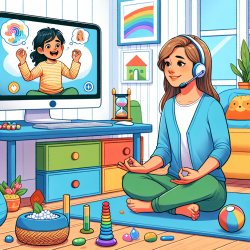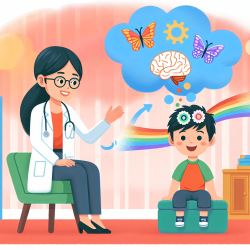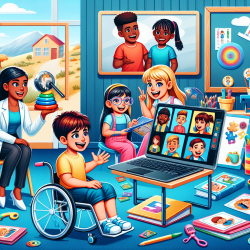Introduction
In the realm of speech-language pathology, the integration of mindfulness and self-regulation techniques can be transformative, particularly when aiming to improve outcomes for children. A recent study titled "Differential Effect of Level of Self-Regulation and Mindfulness Training on Coping Strategies Used by University Students" provides valuable insights that practitioners can leverage to enhance their skills and therapeutic approaches.
Understanding the Research
The study explored how mindfulness training, in combination with varying levels of self-regulation, influences coping strategies among university students. The findings revealed that mindfulness training significantly decreased negative, emotion-focused coping strategies and increased positive, problem-focused strategies. These outcomes were most pronounced in students with higher levels of self-regulation.
Implications for Practitioners
For practitioners working with children, these findings underscore the importance of incorporating mindfulness and self-regulation techniques into therapy sessions. Here are some actionable steps based on the research:
- Assess Self-Regulation Levels: Begin by evaluating the child's current level of self-regulation. This can guide the customization of mindfulness interventions to better suit their individual needs.
- Incorporate Mindfulness Practices: Introduce mindfulness exercises such as deep breathing, body scanning, and guided imagery. These practices can help children become more aware of their thoughts and emotions, promoting better emotional regulation.
- Focus on Positive Coping Strategies: Encourage the use of problem-focused coping strategies, such as seeking help and positive reappraisal, to empower children to handle stress more effectively.
Encouraging Further Research
While the study provides a solid foundation, further research is needed to explore the long-term effects of mindfulness and self-regulation training in younger populations. Practitioners are encouraged to contribute to this growing body of knowledge by conducting their own studies and sharing findings within the community.
Conclusion
By integrating mindfulness and self-regulation techniques into therapeutic practices, practitioners can significantly enhance the coping strategies of children, leading to improved emotional and behavioral outcomes. This approach not only aligns with data-driven decision-making but also fosters a supportive environment for children to thrive.
To read the original research paper, please follow this link: Differential Effect of Level of Self-Regulation and Mindfulness Training on Coping Strategies Used by University Students.










